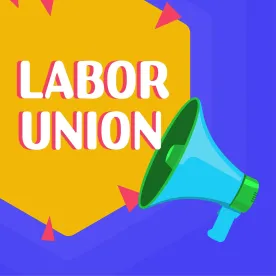The National Labor Relations Board (“NLRB”) has issued a decision requiring employers to either recognize a new union, or promptly file for an NLRB-run election, when a union asks for recognition based on a majority of workers showing support. Before, employers were required to recognize and bargain with unions that have majority support from workers, unless the company has a good-faith reason to doubt that support.
Now, with Cemex, the NLRB has removed the good-faith doubt provision, which essentially allows card check for union elections. Prior to this decision, the good-faith doubt provision allowed an employer to refuse to recognize a union when presented with signature cards. Then, the union would have the burden to petition the NLRB to hold a secret ballot election. Through Cemex, the NLRB has moved the burden to employers to petition the NLRB for a secret ballot election, which an employer must do within two weeks barring unusual circumstances. If an employer does not, then the employer has acknowledged the union’s status, and the employer must recognize and begin bargaining with the union.
The NLRB has also issued a direct final rule on “ambush elections.” This rule, issued without public notice and comment, essentially re-instates the 2014 Obama-era ambush election rule hoping to reduce the time it takes from petition to election by:
- Allowing pre-election hearings to begin more quickly;
- Ensuring that important election information is disseminated to employees more quickly;
- Making pre- and post-election hearings more efficient; and
- Ensuring that elections are held more quickly.
The Cemex decision states that if an employer commits any unfair labor practice during an election window, the NLRB will be able to force an employer to recognize a union based on signature cards alone. The new ambush election rule could shorten the election window to as little as seven to ten days, and the NLRB is more likely to find an employer guilty of an unfair labor practice based on its decision in Stericycle.
The NLRB also currently has a pending rule on joint employers which is expected to be issued soon. The proposed rule aims to re-instate another Obama-era standard where employers are considered joint employers if an employer has control over employees. This control would be considered regardless of whether the control is reserved or indirect, or if it has never been exercised by the employer. The proposed rule also has no limiting principle, as the previous rule required the joint employer to possess “sufficient control over employees’ essential terms and conditions of employment to permit meaningful collective bargaining.”
What Employers Need to Know
Given the new direct final rules and the Cemex decision, employers need to be aware of signature gathering in the workplace. Although the NLRB removed the good-faith doubt provision regarding recognizing a union, employers still have the right to object to signature cards if presented with them. Employers must also be prepared to quickly file election petitions now that the onus is on the employer, not the union, to petition the NLRB for an election. Finally, employers will have to look at their business structure to ensure they will not be considered “joint employers” in the eyes of the NLRB. If entities are considered a joint employer, then both are potentially liable for unfair labor practices committed by the other, and both are subject to union picketing or other economic pressure if there is a labor dispute.




 />i
/>i

